Confused by power protection terms? Wondering if "battery backup" is the same as a full UPS? This confusion can lead to buying the wrong protection for your critical equipment.
A "UPS battery backup" refers to the energy storage component within a larger "Uninterruptible Power Supply" (UPS) system. The UPS device provides comprehensive power protection, including battery backup, surge suppression, and voltage regulation, while the battery backup is just one part of that.
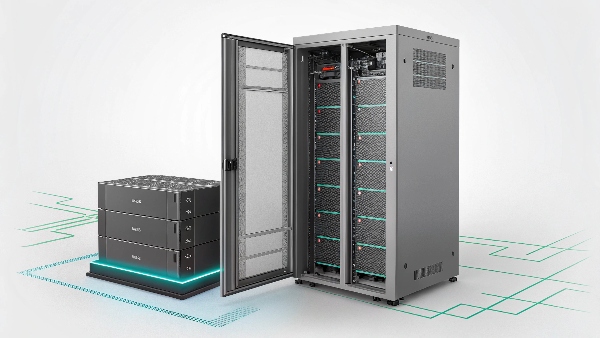
Understanding this distinction is key to choosing the right power solution. It's easy to get lost in jargon, but I'm here to guide you. Let's explore each aspect further.
What is the purpose of UPS battery backup?
Power flickers, and your work vanishes. Frustrating, isn't it? Without backup power, even short outages cause data loss and downtime. A UPS battery backup provides that crucial emergency power.
The primary purpose of a UPS battery backup is to provide immediate, temporary power to connected devices when the main power source fails. This allows for safe shutdown or continued operation during short outages, preventing data loss.
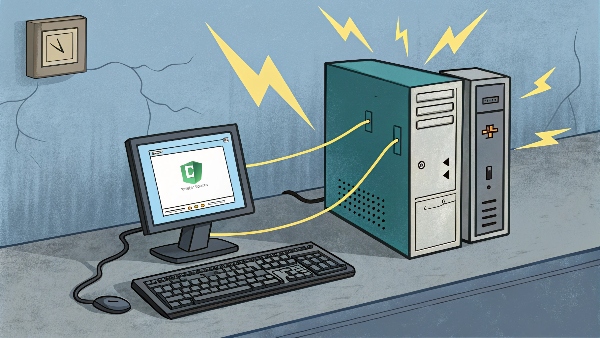
A UPS battery backup1 is essentially the heart of the immediate response system within a full Uninterruptible Power Supply2. Think of it as a dedicated energy reservoir. When the main AC power cuts out, the UPS detects this instantly. The battery then kicks in, typically within milliseconds, to supply power to your connected equipment. This seamless transition is vital. For example, in a hospital setting, where we've supplied many systems, even a momentary power loss to critical medical devices can have serious consequences. The battery ensures these devices keep running. The capacity of the battery, often measured in Ampere-hours (Ah)3, determines how long it can supply power. For a home computer, this might be 5-15 minutes – enough to save your work and shut down. For larger, more professional applications like data centers or industrial settings, multiple high-capacity batteries can provide power for much longer periods. Sometimes this can be hours, allowing for generator startup or other contingency plans. It's this core function that gives you that crucial window of time to protect your operations.
What does an UPS power supply do?
Dirty power or sudden surges damage your expensive electronics. Worried? Relying only on battery backup ignores other common, harmful power problems. A full UPS power supply offers comprehensive protection.
An Uninterruptible Power Supply (UPS) does much more than just provide battery backup. It conditions incoming power, protects against surges and spikes, regulates voltage fluctuations, and ensures a clean, stable power supply to your sensitive electronic equipment.
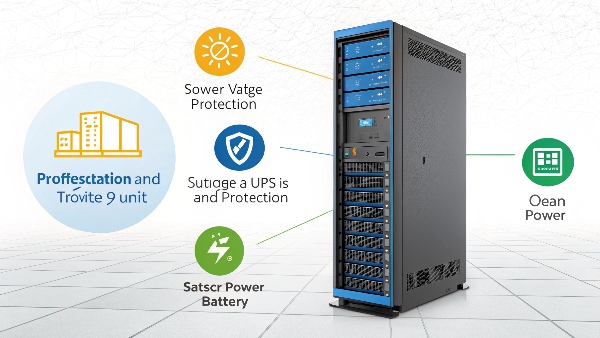
| A complete UPS power supply is a sophisticated piece of equipment, far more than just a box with a battery. As an OEM/ODM manufacturer, we design these systems with multiple layers of protection because we know professional applications demand it. First, there's the battery backup, which we've discussed. But critically, a UPS also acts as a filter and a regulator for the mains power. This is where its role becomes very professional and specialized. Here's a breakdown of its key functions beyond just battery: | Function | Description | Why it's Important for Professional Use? |
|---|---|---|---|
| Surge Protection | Diverts excess voltage from power spikes (e.g., lightning strikes nearby). | Prevents instant damage to sensitive microprocessors and internal components. | |
| Voltage Regulation (AVR) | Corrects chronic under-voltages (brownouts) and over-voltages without switching to battery power. | Extends equipment lifespan; ensures operational stability for devices sensitive to voltage. | |
| Noise Filtering | Removes electromagnetic interference (EMI) and radio frequency interference (RFI) from the power line. | Crucial for clear audio/video equipment, precise scientific instruments, and reliable data transmission. | |
| Power Conditioning | (Often in online UPS models) Regenerates a perfectly clean, stable sine wave power output, regardless of input quality. | Essential for critical servers, medical diagnostic equipment, and any highly sensitive electronics. |
These features make UPS systems vital in a wide range of professional environments, from financial institutions to manufacturing plants, where power quality is as important as power continuity. It’s about total power assurance.
What is the UPS battery used for?
Main power is gone. Now what? Panic sets in quickly. Without stored energy, even the best UPS system is useless in an outage. The UPS battery is your dedicated, instant power source.
The UPS battery is used to store electrical energy. During a power outage or significant voltage drop, the UPS instantly draws upon this stored energy to power the connected devices, ensuring they continue to operate without interruption for a limited time.
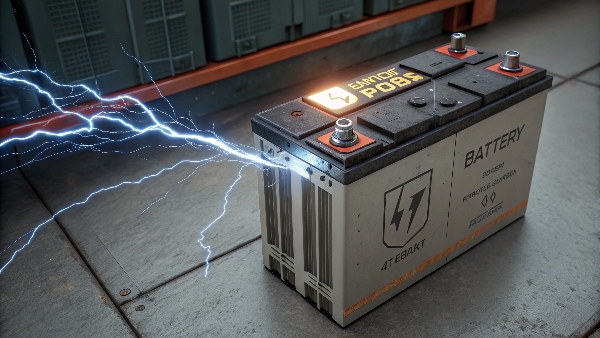
The UPS battery serves a singular, critical purpose: to be the immediate responder when primary power fails. It's not just any battery; it's specifically designed and selected for demanding UPS applications. These batteries are typically sealed lead-acid (SLA) types, known for their reliability and cost-effectiveness, or increasingly, lithium-ion types. We've seen a big shift towards lithium batteries in many professional and specialized UPS solutions due to their longer operational lifespan, lighter weight, and better power density. The battery is constantly kept in a fully charged state by the UPS unit's internal charger when mains power is available. When the UPS senses a power problem – like a complete blackout or a severe voltage sag below a safe threshold – it switches its output source from the mains to the battery. This transition is incredibly fast, often just a few milliseconds, so your computer, server, or other critical load doesn't even notice the switch. The amount of energy stored (its capacity) dictates how long it can power your equipment. For our clients in telecommunications, even a few minutes on battery can be enough to keep critical communication lines open until alternative power is stable. The battery is the lifeline.
What is the difference between UPS and UPS battery?
Are they the same thing? Many people use the terms interchangeably. This confusion can lead to under-protecting your valuable systems. Let’s clearly define the UPS and its battery component.
The key difference is that the "UPS battery" is a component within the "Uninterruptible Power Supply" (UPS). The UPS is the complete system providing backup power, surge protection, and voltage regulation, while the battery is its energy storage element.
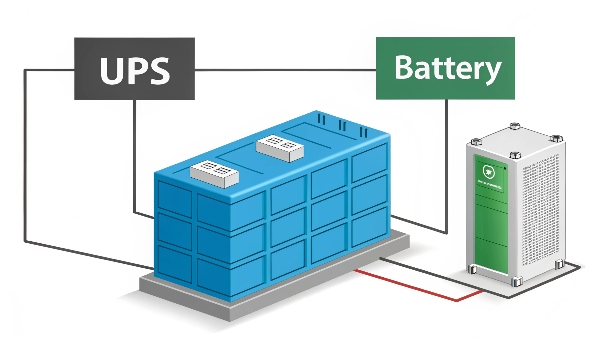
| Think of it like a car and its engine. The car is the complete Uninterruptible Power Supply (UPS) – a system designed to provide reliable power, much like a car provides transport. It has a chassis, control systems, and protective features (akin to the UPS's inverter, charger, surge protection, voltage regulation, and control circuitry). The UPS battery is like the car's fuel tank and engine combined – it provides the stored energy to keep the system running when the main "road" (mains power) is unavailable or unsafe. You cannot have a functional UPS without a battery, but the battery alone does not offer the comprehensive protection or the intelligent power management of a full UPS system. A standalone battery simply gives you raw DC power. A UPS, on the other hand, takes that battery power, converts it to stable AC power, and manages its delivery smoothly, alongside protecting against other power line issues. Here's a simple comparison highlighting their distinct roles, especially important in professional applications: | Feature | UPS (Uninterruptible Power Supply) | UPS Battery |
|---|---|---|---|
| Definition | Complete power protection & backup system | Energy storage component of a UPS | |
| Primary Function | Ensure power continuity & quality to the load | Store and provide backup electrical energy | |
| Components | Inverter, rectifier/charger, static switch, battery, surge protection, AVR, control logic, interface. | Multiple electrochemical cells, casing, terminals. | |
| Protection Level | Comprehensive (outages, surges, sags, noise, etc.) | Provides backup energy only during outages. |
As an OEM manufacturer, we design the entire UPS system. This includes carefully selecting or even custom-designing battery packs to match the UPS's specific performance characteristics for diverse and often very specialized professional applications, from small office setups to large industrial installations.
Conclusion
In essence, a UPS is the complete protection system, and the battery backup is its crucial energy source. Understanding this helps you choose wisely for your needs.
-
Discover the advantages of battery backup systems to protect your devices from power interruptions and surges. ↩
-
Understanding UPS systems is crucial for ensuring your equipment's safety during power outages. Explore this link for detailed insights. ↩
-
Learn about battery capacity measurements like Ampere-hours to make informed decisions for your power needs. ↩

